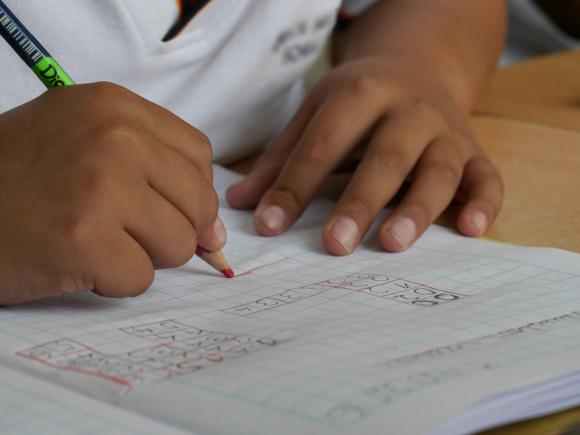
For children with disabilities, the timely implementation of special education programming and services is crucial for their learning, literacy, and overall development. This urgency is reflected in the federal Individuals with Disabilities Education Act (IDEA), which mandates that disputes over special education services be resolved within 45 days. However, a recent class action lawsuit including more than 5,000 children with disabilities and their families revealed that the New Jersey Department of Education (NJDOE) has failed to meet this requirement for decades.
On April 11, 2024, in C.P. v. New Jersey Department of Education, a U.S. district judge approved a settlement that can begin to right these wrongs. Playing a significant role in this achievement was the Rutgers Education and Health Law Clinic (EHLC), which represented several non-profit advocacy organizations as amici curiae throughout the litigation.
Making a Difference for New Jersey’s Families
The EHLC, which provides free legal representation to low-income parents of children with disabilities in special education, early intervention, and school discipline matters, learned of the case in the summer of 2019.
“Having witnessed the significant harms the delays caused on our own client population and knowing that any decision in the matter would directly affect the clients and communities we serve, we agreed to represent several non-profit organizations, associations of attorneys, and advocates who are dedicated to advocating on behalf of children with disabilities and who are passionate about this issue,” says EHLC’s Jennifer N. Rosen Valverde, distinguished clinical professor of law and Nadine Taub Scholar. Amici curiae members included SPAN Parent Advocacy Network, Education Law Center, Disability Rights New Jersey, Advocates for Children of New Jersey, and the Council of Parent Attorneys and Advocates.
Throughout the process, Valverde and the EHLC took on a more involved role than is typical for amicus curiae. They briefed numerous motions, argued those motions in court, and Valverde was prepared to serve as the plaintiff’s first witness had the matter gone to trial. When EHLC expressed concerns to the judge about the initial settlement, he advised the parties to take amici’s concerns seriously and Valverde was invited by the parties to participate in settlement negotiations. Later, she testified in favor of the final settlement at the fairness hearing.
“This case is about critical educational and developmental time lost for children with disabilities when enforcing their rights under the IDEA,” explains Valverde. “Time is even more crucial for children living in households that are low-income or poor due to the triple harm of poverty, disability, and inappropriate educational programming. Studies have shown that delays in the identification and remediation of childhood disability can have significant adverse effects on the child—because disabilities may become ingrained and less responsive to treatment—and their families, by increasing stress and affecting parents’ ability to work and care for the family’s basic needs. The fact that it took nearly five years to resolve the matter is not only ironic, but also exceedingly frustrating and sad. While the settlement isn’t perfect, it provides needed parameters to repair the State’s broken dispute resolution system and I am cautiously optimistic that compliance will be achieved.”
In the end, the settlement addresses many of amici’s concerns. First, it mandates the appointment of a compliance monitor to help NJDOE meet its 45-day obligation and provide regular reports to the public on NJDOE’s progress. Until 95 percent of cases are decided within 45 days, the federal court will retain jurisdiction. And, families affected by past violations of the 45-day rule now have two years to pursue legal claims against NJDOE.
“Drafting briefs for this case allowed me to have real-world legal experience on a compelling and timely legal issue, while simultaneously allowing me to advocate for justice for a highly vulnerable population,” says Nicole M. Virella Almanzar ’20, who worked on this case as a student in the EHLC. “The legal issues at hand in this case will have long standing effects on the special education process in New Jersey and I’m grateful to the Education and Health Law Clinic for giving me the opportunity to work on this matter.”